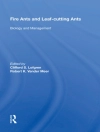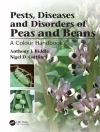This monograph addresses the methodological and empirical issues relevant for the development of sustainable agriculture, with a particular focus on Eastern Europe. It relates economic growth to the other dimensions of sustainability by applying integrated methods. The book comprises five chapters dedicated to the theoretical approaches towards sustainable rural development, productivity analysis, structural change analysis and environmental footprint.
The book focuses on the transformations of the agricultural sector while taking into account economic, environmental, and social dynamics. The importance of agricultural transformations to the livelihood of the rural population and food security are highlighted. Further, advanced methodologies and frameworks are presented to fathom the underlying trends in different facets of agricultural production. The authors present statistical methods used for the analysis of agricultural sustainability along with applications for agriculture in the European Union. Additionally, they discuss the measures of efficiency, methodological approaches and empirical models. Finally, the book applies econometric and optimization techniques, which are useful for the estimation of the production functions and other representations of technology in the case of the European Union member states.
Therefore, the book is a must-read for researchers and students of agricultural and production economics, as well as policy-makers and academia in general.
Jadual kandungan
Chapter 1: Introduction and Key Findings.- Chapter 2; Sustainability of Agriculture: Energy Use and Climate Change Mitigation Issues.- Chapter 3: Modelling Production Technology for Development of Agricultural Sector.- Chapter 4: Structural Dynamics in Agriculture.- Chapter 5: Footprint of Agriculture.
Mengenai Pengarang
Tomas Baležentis is a Principal Researcher and a Head of Department at Lithuanian Institute of Agrarian Economics and a Professor at Vilnius University, Lithuania. He specializes in efficiency and productivity analysis and agricultural economics. Tomas Baležentis has been awarded the degrees of Ph.D. at Vilnius University (2015) and the University of Copenhagen (2015). Much of this research has been carried out in cooperation with researchers from Denmark, the Netherlands, China, Belgium, among other countries during research visits and mutual projects. He has published numerous articles in journals with an impact factor. Prof. Baležentis also serves as an editor and reviewer for SSCI/SCI journals.
Dalia Štreimikienė is working as the leading research associate at the Lithuanian Energy Institute and the Lithuanian Institute of Agrarian Economics and a Professor at Vilnius University, Lithuania. She is an expert on climate change mitigation and energy policies for the European Commission, the United Nations Economic Commission for Europe, the United Nations Development Programme, the UNFCCC Secretariat, the World Energy Council and other international institutions. Dalia Štreimikienė has participated in FP 6 and FP 7 projects CASES and PLANETS and was leading many national projects linked to climate change mitigation, use of renewables and energy efficiency improvements. She has published numerous publications in SCI/SSCI journals with an impact factor.
Nelė Jurkėnaitė is a Senior Researcher at the Lithuanian Institute of Agrarian Economics. In 2010, she graduated with a Ph D in Social Sciences (Management and Administration) at Vilnius Gediminas Technical University, Lithuania. Recently, she worked on research and experimental development projects covering the following topics: price transmission, structural changes in agriculture, agricultural waste in the circular economy. Her research focuses on agricultural policy, farm viability, price transmission, and supply chains.
Vida Dabkienė is a Researcher at the Lithuanian Institute of Agrarian Economics and holds a Ph D from Aleksandras Stulginskis University, Lithuania. She conducts research on various issues of sustainable development of the agricultural sector, particularly on environmental and economic sustainability. Currently, her research focuses on the economic analysis of farms, based on the CAP Strategic Plan of Lithuanian agriculture for the 2021–2027 programming period. She has published several papers on these issues in peer-reviewed international journals and is an author of a monograph.












